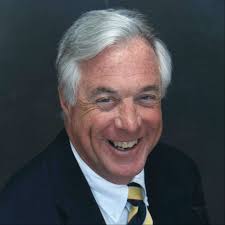Christian ADD and ADDiction
An Explanation, Not An Excuse
By Lawrence Traylor
Jacksonville Beach, Fla.
Best day of my life? Getting diagnosed with ADD. Worst day? The same day.
I am a Christian and have attention deficit disorder (ADD). Learning that you have ADD in adulthood can be a bit startling. Although I have always had ADD, I was not diagnosed until 1992, the same year I got sober, 28 years ago.
ADD has been around for centuries. The symptoms of ADD have been with us as long as history has been recorded. The term attention deficit disorder was coined in the 1970s. It is only recently that this genetic, neurological syndrome has been identified and diagnosed within the adult population. This was a tremendous breakthrough for adults previously thought to be lazy, stupid, and crazy. Approximately 5% of the adult population in the U.S. has ADD.
ADD is not a fad but rather a medical diagnosis. Although attention deficit hyperactivity disorder (ADHD) is the term used by the Diagnostic and Statistical Manual of Mental Disorders of the American Psychiatric Association, I prefer to use the term ADD. You, like me, may have ADD with no hyperactivity-related symptoms.
Undiagnosed, ADD can cripple Christian adults socially, emotionally, and professionally. My personal diagnostic triad of ADD symptoms may also include distractibility, impulsivity, and restlessness. Symptoms may also include an inability to focus, information processing difficulty, forgetfulness, a preponderance for daydreaming, underachievement, and disorganization. Ask someone with ADD the answer to the question of what is 1 + 1, and you may hear an answer of 11.
Many Christian adults with ADD are drawn to high stimulus situations as a means of alleviating boredom and clearing their minds of distractions. The dominant feature of the adult ADD brain is the inability to inhibit or to put the brakes on certain thoughts, feelings, behaviors, or cravings.
For the ADD-er, the associated high of seeking excitement is intoxicating and paradoxically, therapeutically calming, giving way oftentimes to what is known as hyper-focusing. Impulsivity, high energy, frustration, risk-taking behavior, and low self-esteem all add to the likelihood that the ADD-er can end up in troubling situations.
Since childhood, I have suffered from chronic frustration, low self-esteem, and feelings of failure. Before my adult ADD diagnosis, my whole life had been that of searching, knowing something was wrong but unable to identify the cause.
My distress, anxiety, and history of failure, confusion, and unhappiness resulted in deep-rooted pain and low self-esteem. I felt the pain of being emotionally and mentally different, of missing what others got and of getting what others missed.
ADD caused me to struggle socially, always feeling like the red-headed stepchild at a family reunion. I felt like I was the third monkey running to get aboard the Ark.
My ADD drove me to the brink of suicide as I suffered dark, interminable moods where all I could think of is what a rotten, worthless man I was.
Since a concise definition does not exist, we must rely on descriptions of symptoms to define ADD.
People with ADD love to play and hate being bored and, consistently, misperceive, mishear, and misunderstand others. We ADD-ers simply find distractions impossible to resist and can spend a lifetime dodging the necessity of organizing ourselves. An invisible shield of procrastination separates us from the completion of the simplest assignments and tasks at hand.
I was fortunate to attend a small, Rhode Island prep school. Parent-teacher conferences each year yielded the same result, “Laurie is a smart boy if he would only apply himself.” I was much more interested in looking out the classroom windows. To this day, I never met a window I didn’t like.
I thought myself a fraud and survived by continually winging it. “Fake it till you make it” was my adolescent mantra, sprinkled with a propensity for underachieving.
My life dramatically changed in 1992 after reading Dr. Edward Hallowell’s ground-breaking book, Driven to Distraction.
Everything suddenly made sense.
Once my ADD diagnosis had been confirmed, my next step was to learn as much as possible about this condition. As I studied ADD, I learned that it manifests itself differently in different people with varying degrees of intensity. I learned that ADD does not go away and if one has it as a child, one has it for life.
Alcohol was my drug of choice, I relied upon it to self-medicate in treating my dark, depressive, ADD-related moods. Because it feels so good to be focused and calm, the ADD-er becomes highly vulnerable and risks becoming addicted to this self-medicating behavior.
Similar to alcoholism, many people with ADD have trouble accepting this syndrome as being rooted in biology rather than a weakness of self-control and character.
A neurological syndrome, ADD again similar to alcoholism, is one of the most inheritable of all psychiatric conditions. An inherited, genetic syndrome with an exceptionally low tolerance for frustration and boredom, 90 – 95% of people diagnosed with ADD have inherited it.
Coexisting anxiety and depressive disorders among Christian adults with ADD are as common as drug and alcohol abuse. The connection clinicians observe with ADD and subsequent addiction is striking. Most clinicians working with and treating the adult ADD population observe higher than usual rates of alcohol and drug abuse. Because the dominant feature of the ADD brain is the inability to inhibit or to put the brakes on certain thoughts, feelings, behaviors, or cravings, the ADD-er is prone to developing addictions.
Many scientists believe that self-medication with a substance such as cocaine, marijuana, or alcohol is based on biological processes. The introduced substance interacts with various neurotransmitter systems and consequently reduces symptoms of anxiety, depression, or distractibility. The addiction-related problems surface when the brain starts craving the substance to maintain its preferred balance.
Since individuals with ADD are at much greater risk for developing problems associated with addiction, it would be wise for anyone who suffers from ADD to be aware of this inherent predisposition.
Many adults with ADD who don’t know they have it but have successfully obtained years of continuous sobriety often realize after reading a story similar to this one, that they too may be an unknowing victim of undiagnosed ADD.
The starting point for all treatment for ADD is getting an accurate diagnosis. An evaluation by a medical doctor is required to confirm a positive diagnosis. There is no one recipe for treatment nor definitive test for ADD. The diagnosis of ADD is based first and foremost on sharing an individual’s history or life story with a medical doctor. Christian adults historically stumble into an ADD diagnosis by word of mouth, reading an article, or by hearing and learning about it through their children.
There is a distinct difference between ADD and pseudo-ADD. Pseudo-ADD is having ADD symptoms without the actual ADD diagnosis. What differentiates ADD from pseudo-ADD is a matter of duration and intensity of symptoms. Feeling disorganized, being prone to procrastination, and having trouble with relationships may simply be pseudo-ADD. The person with true ADD experiences the symptoms most of the time and experiences them more intensely. Most importantly, the symptoms of an adult with ADD tend to dramatically interfere with everyday life.
In many ways, the most dangerous aspect of undiagnosed and untreated ADD is the continued assault on one’s self-respect and self-esteem.
The longer the diagnosis of ADD is delayed, the greater the risk becomes of alcoholism, drug addiction, and additional secondary problems.
ADD is similar to being nearsighted as both deal with focusing-related problems and no more to be ashamed of than having to wear eyeglasses. Having ADD is nobody’s fault, and when adult ADD is detected and appropriately treated the results, are often dramatic and life-changing, as mine has been.
If you can relate to any of my stories and would like to talk, please call me or call Children and Adults with Attention-Deficit/Hyperactivity Disorder. (CHADD) is a non-profit founded in 1987 with volunteer-managed chapters throughout the U.S.
________________________________________________________________________________
Lawrence (Laurie) Traynor lives in Jacksonville Beach, Florida. He is a member of the recovery community and volunteers his time free of charge in helping addicts and alcoholics, their loved ones, and their families locate drug and alcohol assistance resources. He can be reached at (904) 553-1600. Read more good Christian news from Lawrence HERE.
________________________________________________________________________________







